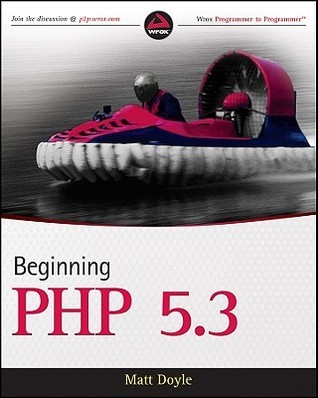What do you think?
Rate this book


Serving as a complete introduction to PHP 5.3, this book walks you through all the major concepts of PHP in a way that’s easy to follow, with plenty of code snippets illustrating each concept to aid learning. You’ll discover how to install and configure PHP 5.3, how to get started with simple programs, and the basic building blocks of PHP such as variables, operators, expressions, arrays, and objects. Coverage working with files, XML, and MySQL; building Web applications with PHP; exploring the PEAR library; handling e-mail; and creating Web graphics.
801 pages, Paperback
First published January 1, 2009